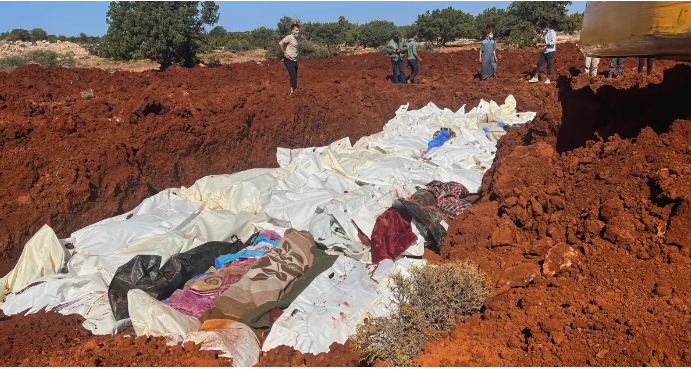Storm Daniel, an unprecedented weather event, has resulted in catastrophic flooding in Libya, with the death toll reaching 6,000, as reported by CNN.
Saadeddin Wakil, the undersecretary of the Unity Government’s health ministry in Tripoli – one of the competing governments in Libya – confirmed the death count. Hospitals, overwhelmed and partially non-functional, are unable to cope with the magnitude of casualties and injured survivors.
Nigeria’s President, Bola Tinubu, expressed his readiness to aid the flood-stricken Libyans, stating Nigeria’s commitment to provide essential support. The President’s sentiment was relayed in a statement by his Special Adviser on Media and Publicity, Ajuri Ngelale.
BBC coverage highlighted the severe humanitarian crisis, with numerous body bags and mass graves as a testament to the disaster’s extent. Hisham Chkiouat, a Libyan minister, commented on the dire situation, referencing the sea bringing in bodies constantly.
Egypt has conducted mass burials for 87 of its citizens who were victims in Libya. With nearly 10,000 individuals still unaccounted for, it’s feared that many might be either buried under the debris or lost to the sea in a city once populated by over 100,000.
The United Nations’ International Organisation for Migration noted that the floods displaced over 30,000 residents in Derna. Damage to regional infrastructure has hampered relief efforts, limiting access to affected areas. Currently, only two of the seven main entryways to Derna are operational.
Search and rescue teams are racing against time, combing through debris to find survivors and the deceased, aligning with Islamic customs which necessitate burials within three days.
President Tinubu offered his deep condolences to Libya, emphasizing his solidarity with those affected. Expressing empathy for the families who suffered losses, he termed the event a “monumental disaster.” He reassured Libya of Nigeria’s steadfast support, emphasizing the tragedy as a shared sorrow binding both nations.

Leave a Reply